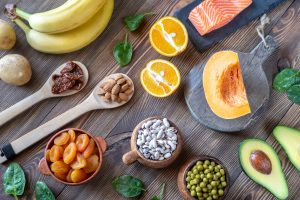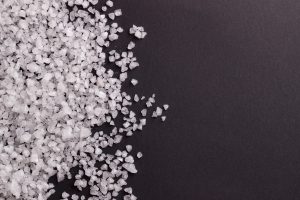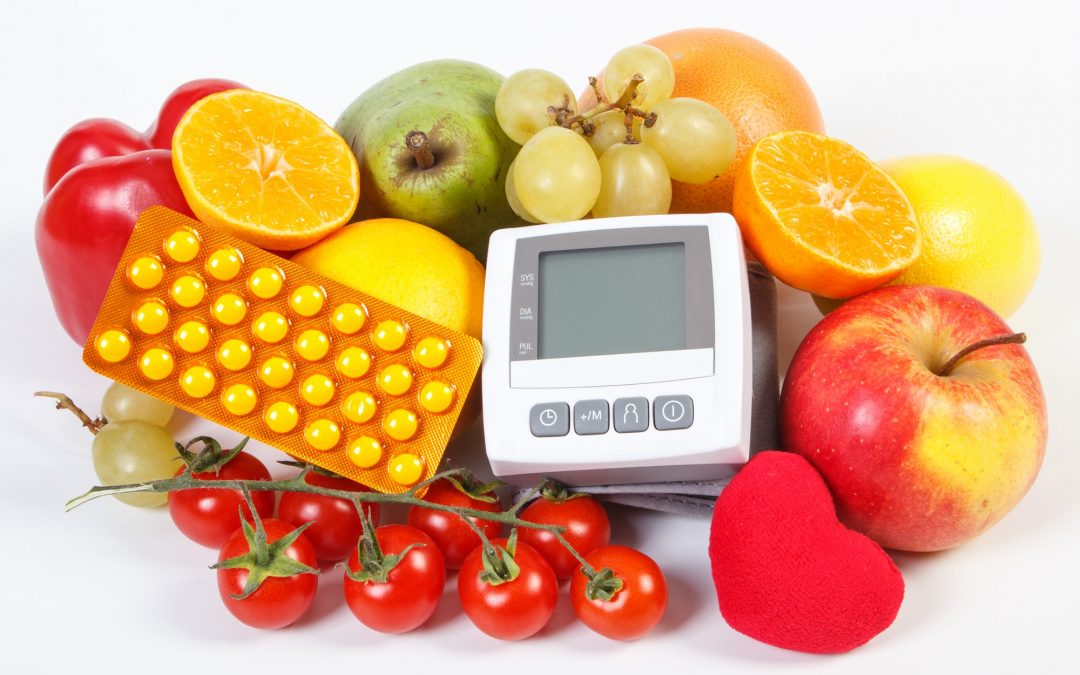What is blood pressure?
Blood pressure is the force of blood pushing against your artery walls. You have likely had your blood pressure taken at the doctor’s office, but what do the numbers mean that your doctor gives you? How do you know if you have normal, high, or low blood pressure? And what can you do to control blood pressure?
What do the numbers mean?
There are two numbers you will hear when you get your blood pressure taken. The first number is your systolic blood pressure, the pressure caused by the heart contracting and pushing out blood. The second is diastolic blood pressure, when the heart relaxes and fills with blood. You will hear the numbers as systolic over diastolic (for example, 128/74).
What is normal verses high blood pressure?
In an adult, normal blood pressure is a systolic number less than 120, over a diastolic that is less than 80. (120/80) High blood pressure is defined as anything higher than 130 over anything higher than 80. Low is anything lower than a systolic of 90 over a diastolic of 60.
High blood pressure (also known as hypertension) is a condition in which the long-term force of the blood pumping against the artery walls is high enough that it can cause health concerns like heart disease. It can lead to stroke, heart attack, aneurysm, heart failure, and metabolic syndrome.
What causes high blood pressure?
Some of the causes of high blood pressure are not within our control.
- Age: As our bodies grow older, arteries stiffen and blood pressure rises. It is a leading cause of high blood pressure.
- Gender: Women have a greater risk of high blood pressure than men.
- Race: Studies have show that people of African descent are at an increased risk of high blood pressure.
- Family history: If others in your family have experienced high blood pressure, you are more likely to as well.
We can’t change these factors; but there are many things you can do to keep our blood pressure as normal as possible.
What can I do to control my blood pressure?

First, get your blood pressure checked regularly. High blood pressure does not have many outward symptoms, so feeling fine is not always an indicator you don’t have high blood pressure. If you do have high blood pressure, your doctor may instruct you to regularly check your own blood pressure at home.
There are many natural things you can do at home to lower high blood pressure:
1. Exercise Regularly
Exercising for 30 minutes most days of the week can significantly lower blood pressure. Exercising will strengthen arteries and make the heart more efficient at pumping blood. [1] [2]
Aerobic exercises are great for your heart. These include walking, jogging, swimming, and cycling. You can also do strength-training and high-intensity workouts followed by periods of lighter activity. Remember to be consistent; when you stop, your blood pressure will simply rise again.

2. Eat a Healthy Diet
Make sure your diet is rich in whole grains, fruits, vegetables, and low-fat dairy products. Make sure your diet includes the following to help lower your blood pressure:
- Potassium: bananas, leafy greens, tomatoes, potatoes, sweet potatoes, avocados, oranges, apricots, dairy products, tuna, salmon, beans, nuts and seeds
- Calcium: dairy, leafy greens, collard greens, beans, sardines, tofu
- Magnesium: vegetables, dairy products, legumes, chicken, whole grains
- Polyphenols (compounds that contain antioxidants, flavenoids, and other good nutrients): berries, dark chocolate and cocoa powder, cloves, beans, nuts [3] [4]
3. Maintain a Healthy Weight
Being overweight increases the risk of high blood pressure. Studies have shown that losing 5% of body mass can significantly decrease high blood pressure [5] A healthy diet will help you shed the unhealthy weight and will help you maintain normal blood pressure. A healthy weight is even more effective when paired with exercise.

4. Consume Less Salt
Too much sodium intake is linked with high blood pressure [6] [7]. The recommended daily sodium intake for adults is 1,500 mg (and no more than 2,300 mg). [8] Try to avoid processed foods and don’t add extra salt to your meals to control your blood pressure.
5. Drink Less Alcohol
Global estimates indicate that the attributable risk for hypertensive disease from alcohol is 16%. [9] Drinking more than moderate amounts will raise blood pressure by several points. It can also inhibit the efficiency of blood pressure medications. If you are at risk for high blood pressure, cut back on your alcohol intake.

6. Manage Stress
When you are stressed, your body goes into fight-or-flight mode, automatically increasing your heart rate and constricting your blood vessels. Managing your stress through physical and mental exercises can reverse that effect.
One way to address stress is through meditation and deep breathing exercises. Meditating and deep breathing activate the parasympathetic nervous system. Think of it as the opposite of fight-or-flight. It causes your body to relax, slowing your heart rate and lowering your blood pressure. [10] [11] Here is a guide to get you started.
Here are a few more strategies:
- Prioritize your to-do list and learn to say no.
- Focus on what you can control.
- Avoid stress triggers where possible.
- Make time to do things you enjoy.
- Listen to music.
- Develop an attitude of gratitude.
7. Take Heart-Friendly Supplements
Sometimes you need a convenient way to always include certain nutrients in your diet. These are few heart-friendly supplements that can lower your blood pressure and strengthen your heart:
- Aged garlic extract
- L-argenine
- Berberine
- Whey protein
- Fish or kill oil
- Hibiscus
- Beetroot powder
Many heart supplements can help more than just your blood pressure. Get more ideas for supplements here.

8. Quit Smoking
There are several reasons why smoking is damaging to your health, and blood pressure is one of them. Every puff of cigarette smoke increases the blood pressure slightly. It reduces the oxygen content in your blood, making your heart pump harder. [12] Chemicals in tobacco also damage blood vessels. Avoid cigarettes if you have not started and make an effort to quit if you regularly smoke.
9. Cut Back on Caffeine
Drinking caffeine will often cause blood pressure to spike. Though research shows those who are consistent coffee drinkers often find that it has little effect on their blood pressure, it is worthwhile to observe what effect caffeine has on you. If caffeine raises your blood pressure, consider cutting back on caffeine to lower your blood pressure. [13]
10. Limit Refined Carbs
Research has linked added sugars with higher blood pressure. This isn’t just refined sugar though! White flour also has similar effects. Make a simple switch and eat whole grains instead of refined carbohydrates to control your blood pressure. [14]
The Bottom Line:
Your blood pressure matters. High blood pressure can be detrimental to your health. Exercise is a good way to keep your blood pressure low. So is maintaining a diet rich in fruits, vegetables, whole grains, and low-fat dairy. Controlling blood pressure may require some habit or life-style changes, but it will help you avoid serious heart complications and make you feel good!
Resources:
- https://www.ncbi.nlm.nih.gov/pubmed/23525435
- https://www.ncbi.nlm.nih.gov/pmc/articles/PMC3182143/
- http://heart.bmj.com/content/early/2016/05/10/heartjnl-2015-309218
- https://www.nutraingredients-usa.com/Article/2014/01/27/Polyphenols-may-slash-heart-disease-risk
- https://www.ncbi.nlm.nih.gov/pubmed/27930480
- https://www.ncbi.nlm.nih.gov/pubmed/19476440
- https://www.ncbi.nlm.nih.gov/pubmed/20226955
- https://www.mayoclinic.org/diseases-conditions/high-blood-pressure/diagnosis-treatment/drc-20373417
- https://www.ncbi.nlm.nih.gov/pubmed/16922819
- https://www.ncbi.nlm.nih.gov/pubmed/27530006
- https://www.ncbi.nlm.nih.gov/pubmed/23781660
- https://www.medicalnewstoday.com/articles/159283.php
- https://www.ncbi.nlm.nih.gov/pubmed/28251341
- https://www.ncbi.nlm.nih.gov/pubmed/21357284

